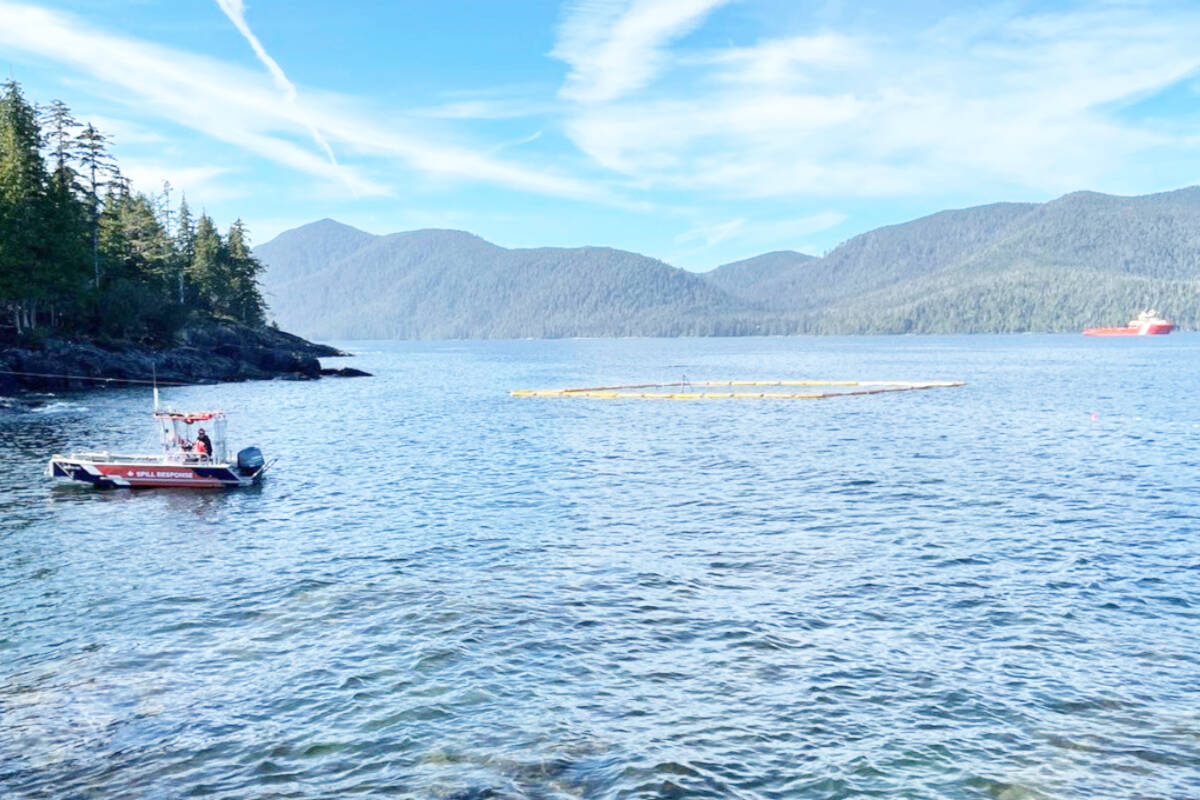The Canadian Coast Guard (CCG), Parks Canada and the Council of the Haida Nation are concerned about pollution after a tour boat sunk off the coast of Haida Gwaii.
On Sept. 10, the CCG got a call that the 42-foot M.V. Island Bay was tilted and unstable while moored in Carpenter Bay, which is on the east coast of Moresby Island in Gwaii Haanas National Park Reserve.
Seven people who were on board were safely transported to shore before the boat did eventually sink.
Even though a National Aerial Surveillance Program overflight did not see any pollution on Sept. 10, the CCG was worried the sunken vessel might release diesel fuel because of the rough marine environment and the weather, Kiri Westnedge stated on behalf of Unified Command, a joint task force between the CCG, Parks Canada and the Council of the Haida Nation.
In response, the CCG’s emergency towboat, the Atlantic Raven, was loaded with pollution reduction equipment in Prince Rupert and departed for Carpenter Bay. The equipment included 1,500 metres of flotation containment boom, two pollution response vessels from Western Canada Marine Response Corporation (a marine spill response organization), two CCG environmental response specialists and a variety of pollution countermeasure equipment.
The Unified Command placed containment and sorbent boom, a specialized material that soaks up oil but not water, around the sunken ship.
Sorbent boom was also used to protect sensitive shoreline areas that were identified by the Council of the Haida Nation and Gwaii Haanas National Park.
“Contact with oil affects the insulation of mammals’ fur and birds’ feathers, exposing them to risks of hypothermia and can cause birds to drown. Ingestion or inhalation of oil can lead to poisoning, reduced growth, deformities or reproduction impairment of sea mammals, birds, shellfish, fish or other small organisms, such as plankton,” the federal government’s website states.
At this point the containment appears to have been effective with minimal sheening inside of the containment boom, Westnedge stated on Sept. 14.
Used throughout the summer for adventure tours, the M.V. Island Bay was operated by Archipelago Ventures. According to their website, the tour that started on Sept. 8 was the last six-day excursion planned for the season.
The owners of the vessel are making plans to salvage the boat, Westnedge stated.
Wainwright Marine Services, based in Prince Rupert, are going to send a tug and barge to the site of the incident to see what they can do to help, Richard St. Pierre, an employee at the barge company said on Sept. 14.
READ MORE: Scuba diver fined $12K for getting too close to killer whales near Prince Rupert Harbour
READ MORE: Boaters are reminded to give whales space
Kaitlyn Bailey | Local Journalism Initiative Reporter
Send Kaitlyn email
Send The Observer email
Like the Haida Gwaii Observer on Facebook
Follow us on Twitter

